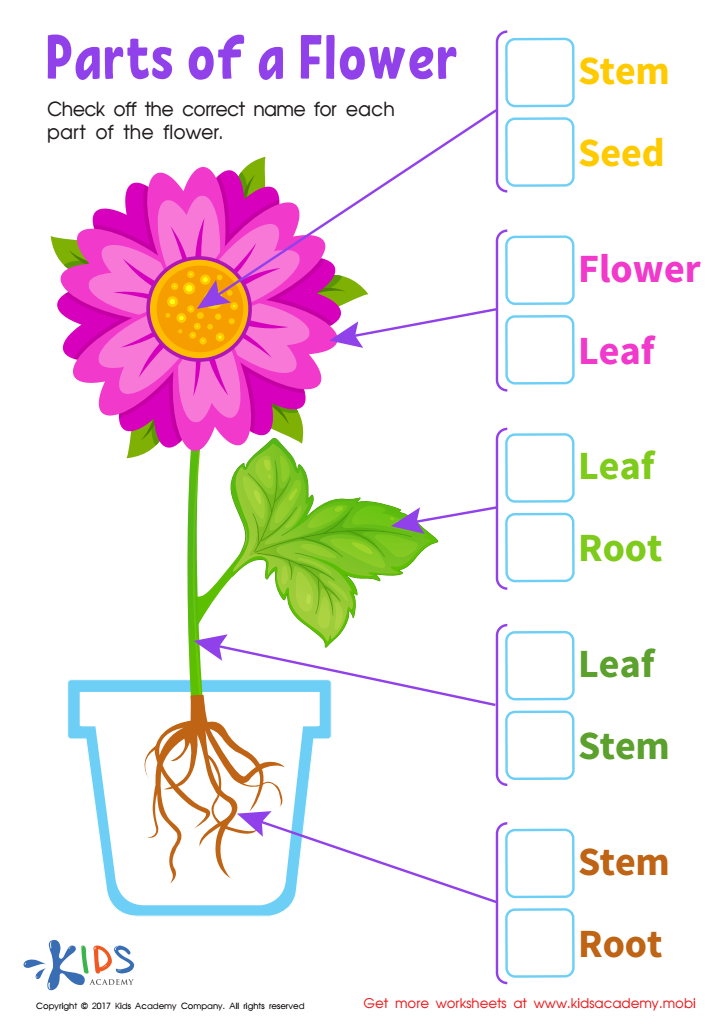Life Science Worksheets for Ages 3-5
3 filtered results
-
From - To
Explore our engaging Life Science Worksheets designed specifically for children aged 3-5! Our comprehensive resources introduce young learners to the wonders of the natural world, including animals, plants, and ecosystems. These worksheets are crafted to enhance curiosity and promote observation skills through fun activities that encourage exploration and discovery. Perfect for early childhood educators and parents, our printable materials support hands-on learning, fostering a love for nature and science from an early age. Help your little ones connect with their environment and develop essential cognitive skills with our lively and educational life science resources!


Parts Flower Printable


Herbivores Printable


Carnivores Worksheet
Life Science for children ages 3-5 is essential for fostering a foundational understanding of the world around them. At this young age, children are naturally curious and eager to learn about living things, their environments, and the basic concepts of life processes. Engaging with Life Science helps cultivate this curiosity, encouraging observation, exploration, and critical thinking. It lays the groundwork for early scientific inquiry by promoting questions about plants, animals, and ecosystems.
Parents and teachers who engage young children in Life Science not only enhance their knowledge but also support the development of essential skills such as reasoning, problem-solving, and communication. Activities like nature walks or observing the life cycle of a butterfly can spark conversations and collaborative learning, fostering social and emotional development.
Beyond academic knowledge, Life Science education instills an appreciation for nature and biodiversity, teaching young children to respect and care for their environment. This early awareness can have lasting impacts, encouraging environmentally conscious behaviors as children grow.
In essence, integrating Life Science into early childhood education is crucial for nurturing well-rounded, environmentally aware individuals who value and understand the interconnectedness of life. It fosters a lifetime love of learning and respect for the world we share.
 Assign to My Students
Assign to My Students




.jpg)










